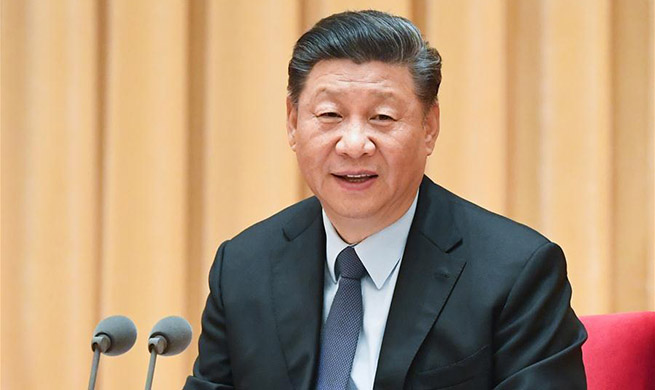MADRID, Dec. 13 (Xinhua) -- Since the beginning of this month, delegates from almost 200 countries and regions have convened here to discuss how to implement the 2015 Paris Agreement, the main multilateral drive to stave off global warming.
At a time when unilateralism and populism are rising around the globe, the fact that the nations of the world need to and can come together to cope with climate change proves that multilateralism remains a trend of the times.
Over 26,000 people took part in the United Nations Climate Change Conference (COP25), which is to conclude on Friday. Over the past two weeks, delegates worldwide have gathered to negotiate the remaining details for a complete implementation of the Paris Agreement, while international institutions, local governments, non-governmental organizations and companies have elaborated on how to make their own contributions to addressing the common global challenge.
There are still some differences. Developing countries are hoping for stronger financial and technological support from the developed economies, while the wealthy ones are urging developing nations to cut more emissions.
According to some delegates at the consultation, some of them almost quarreled over one word of the final text of the congress, and the fierce negotiations ran from late night until early morning.
That is exactly how multilateralism works: Representatives of different countries sit around a table, share their views, listen to each other, and search for a compromise.
Carolina Schmidt, Chile's environment minister and chairwoman of the COP25, said last week that the congress shows how multilateralism works, as no country can solve climate change alone.
The meeting took place after the United States, one of the world's major emitters, initiated the formal withdrawal process from the Paris Agreement in November, a move that has drawn strong criticism both at home and abroad.
Regardless of Washington's departure, many other countries remain committed to their support for the climate pact and to multilateral ways to addressing common global issues because they understand well that there is no plan B, because there is no planet B.
It is believed that the cause of saving our Earth from climate change will bring more and more countries around the world together, if not all. In fact, in combating this consequential challenge facing humanity, the power of multilateralism could prove its indispensable value.













